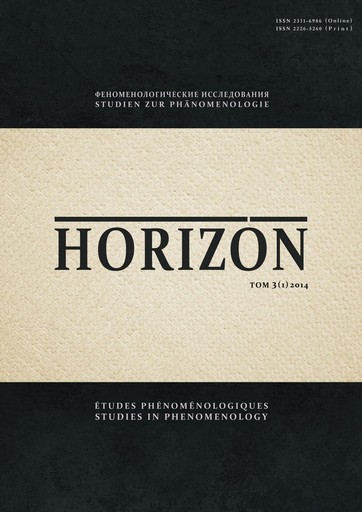WELSH TALIA.“THE CHILD AS NATURAL PHENOMENOLOGIST:
PRIMAL AND PRIMARY EXPERIENCE IN MERLEAU-PONTY’S PSYCHOLOGY”
WELSH TALIA.“THE CHILD AS NATURAL PHENOMENOLOGIST:
PRIMAL AND PRIMARY EXPERIENCE IN MERLEAU-PONTY’S PSYCHOLOGY”
Evanston, Illinois: Northwestern University Press, 2013, 194 P. ISBN: 978-0-8101-2880-4
Author(s): Iulian ApostolescuSubject(s): Philosophy of Mind, Phenomenology
Published by: Издательство Санкт-Петербургского государственного университета
Keywords: syncretic sociability; intersubjectivity; self; primary experience; gestalt; psychology; interdisciplinary
Summary/Abstract: This review is devoted to one of intriguing topics in psychological literature of 20th century —primary phenomenological world of a child. The author, American philosopher Talia Welsh,addresses to Merleau-Ponty’s thought, which is indubitable a challenging and fruitful in thissphere, grounded on Abstract: phenomenological and postmodern traditions. The essentialfeature of his thought consist in elaboration of ecological, existential structure of child’s experience:in his being-in-the-world and his being-with-others. Besides, Merleau-Ponty surmountshusserlian taboo in the respect of natural sciences, appealing to a number of psychological,psychoanalytical, empirical data. Welsh elucidates one of the controversial thesis of Frenchphilosopher about syncretic sociability of child’s way of being. According to Merleau-Ponty,at first there is no discrete sense of the self and sense of others, due to more fundamentalapriori of any interactive, intersubjective being, which is anonymous and asubjective, butsocial life. Welsh demonstrates actuality of Merleau-Ponty’s ideas, addressing to contemporaryresearch of child’s experience of the others in interdisciplinary sphere (Sh. Gallagher,A. Meltzoff, B. Stawarska etc.) The significant idea of this book is to refresh our look on thenature of subjectivity. In situation of primary experience of the world and others, beforeany theoretical stance, which provokes us to generalize and to universalize our experientialcontent, we already understand it, them in phenomenological, existential stance, by actingin our primary environment and existing toward to, with others. Several psychologicalexamples confirm this idea. Welsh makes a point of connection Merleau-Ponty’s ideas withones of Marx and Freud, who unmask the idea of absolute truth in a favor of hermeneuticalunderstanding of factical life.
Journal: Horizon. Феноменологические исследования
- Issue Year: 3/2014
- Issue No: 1
- Page Range: 268-271
- Page Count: 4
- Language: English

